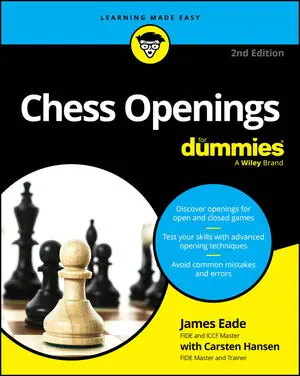The rapid mobilization of pieces is called development. Development is not considered complete until the knights, bishops, queens, and rooks are moved off their original squares. Normally, getting the knights, bishops, and queen off the back rank also is important. Rooks may be effective fighting from their starting rank, but the other pieces usually increase in power only as they move toward the center. Here's how to man your battle stations!
Control the center
Control of the center and centralization of your pieces are critical objectives in a chess game. The pieces generally increase in power as they are centralized. In the opening phase, you want to try to maximize the power of the pieces in a minimum amount of time. Moving one piece three times to position it on the best square doesn't help much if, in the meantime, your other pieces languish back on their original squares.Watch your opponent
Just as important as developing quickly is preventing your opponent's development. Some otherwise strange-looking moves can be explained only in this way. If you waste two moves to force your opponent to waste three, well, those moves weren't wasted after all!This idea brings up an important chess maxim: don't get so caught up in your plans that you forget about your opponent's moves. Just as you are, your opponent is trying to interfere with your development while developing their own pieces — at your expense.
Follow basic principles
As you become familiar with the game, you begin to pick up on a few basic principles of opening play, not only from your own experiences, but also from other players. (Remember, however, that many such principles are just guidelines — don't think you're bound by them. If, for example, your opponent slips up and gives you the opportunity to deliver checkmate, do so! Don't worry that such a move develops your queen too early!)Grandmaster Ludek Pachman, in his outstanding book Modern Chess Strategy, offers the following four principles of opening play:
- Place the pieces without loss of time where they can develop their greatest power.
- Do not move a piece that is already developed unless you have a strong reason for doing so.
- Avoid putting pieces on squares where they can be driven off by moves that also contribute to the development of enemy pieces and pawns.
- Pawn moves in the opening game serve only as an aid to develop your pieces and as a means of fighting for the center; keep such moves, therefore, to a minimum.






